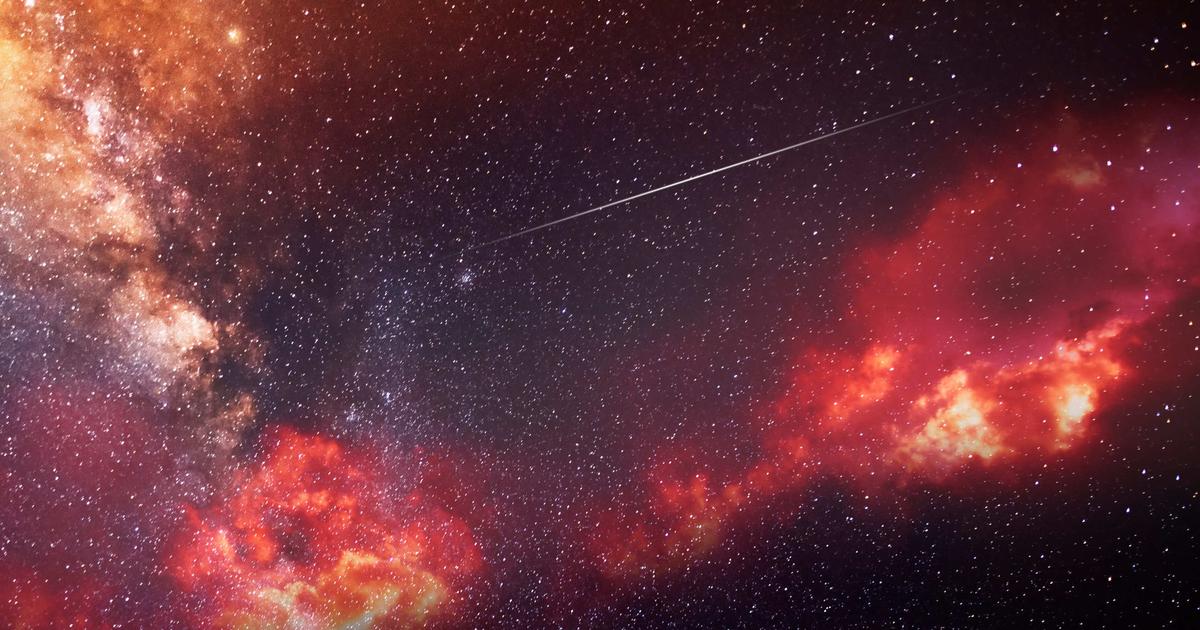Its mad fall kept the whole world in suspense: in May 2021, the main stage of a Chinese Long March 5B rocket headed straight for Earth, at full speed, without the place of impact being able to be anticipated. .
She finally ended her race in the Indian Ocean, off the Maldives, without causing any damage.
An isolated case ?
Not really.
A year earlier, debris from a similar device crashed in Côte d'Ivoire, causing damage to buildings.
In 2018, it was the Chinese space station Tiangong-1 that randomly went down in the Pacific;
Already in 2016, a SpaceX rocket stage had damaged an animal enclosure in Indonesia, without injuring the hosts.
If no human tragedy has been recorded so far,
what would be the risk that one day “the sky will fall on someone's head”?
Researchers from Canadian universities pulled out the calculator… and the result is far from zero.
Reports of a 12-m-long object crashing into the village of Mahounou in Cote d'Ivoire.
It's directly on the CZ-5B reentry track, 2100 km downrange from the Space-Track reentry location.
Possible that part of the stage could have sliced through the atmo that far (photo: Aminata24) pic.twitter.com/yMuyMFLfsv
— Jonathan McDowell (@planet4589) May 12, 2020
Michael Bayers of the University of British Columbia and his colleagues analyzed data from the past 30 years.
More than 1,500 rocket bodies desorbed during this period, 70% of them uncontrolled, according to their estimates.
“When intact stages return to Earth, a substantial fraction of their mass survives the heat of atmospheric re-entry as debris.
Many surviving pieces are potentially deadly and pose serious risks on land, at sea and to aircraft passengers, ”warns their article in Nature Astronomy.
Over the period 1992-2022, the probability of a rocket tip causing at least one victim was 14%.
“Although such an event did not occur, or at least was not reported,
the calculations show that the risk involved was far from negligible.
»
Southern countries more exposed
Given the increasing number of rocket launches, the risk is on the rise: over the next decade alone, the probability of a fatal accident is estimated at 10%!
But the debris that resists the atmosphere can be very large, as well as very small.
"The rebound must also be considered", underlines Aaron Boley, co-author of the study, just like "the typical height of a person".
To make their calculations despite the variations, the researchers established an average to estimate the danger zone on the ground where the deadly debris would spread: it would be 10 m².
However, we would not all be equal in the face of this risk.
While rocket launches are carried out by a handful of economically strong states, it is the countries of the South that would be the most exposed.
The ends of rockets would, in fact, be three times more likely to land at the latitudes of Dhaka, Jakarta or Lagos than in New York, Moscow or Beijing.
This inequality could be explained by the fact that uncontrolled re-entries are often associated with launches to orbits dominating regions close to the equator.
The authors of the study urge space players to stop playing Russian roulette and call for multilateral agreements: "We argue that recent improvements in technology and mission design make most of these uncontrolled re-entries unnecessary, but that States and companies (responsible for these launches) are reluctant to assume the increased costs involved.
According to them, “national governments whose populations are endangered should demand that major space states act, together, to impose controlled rocket re-entries.”















